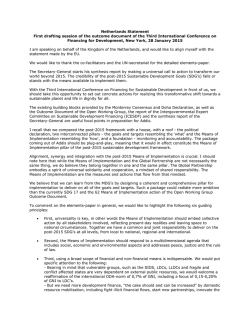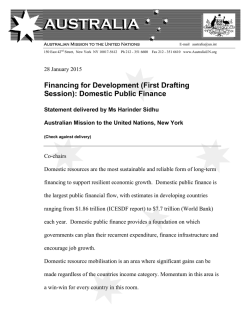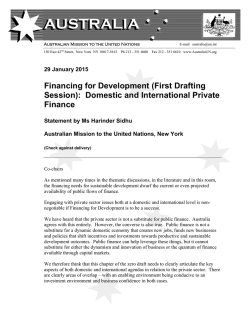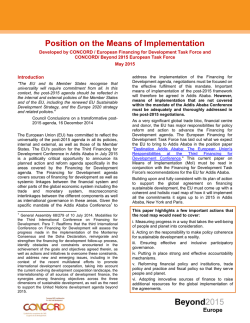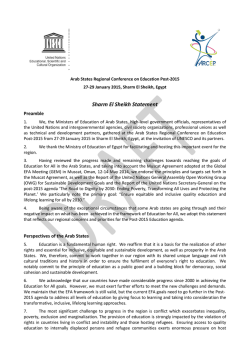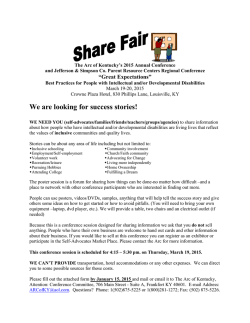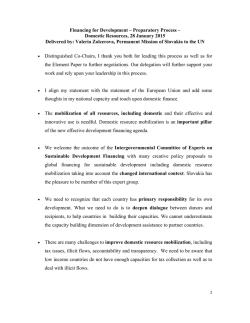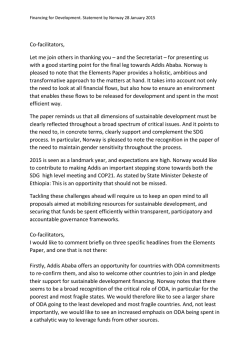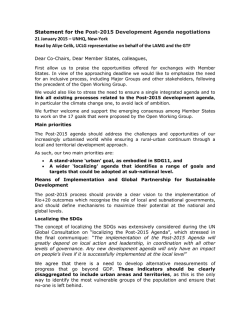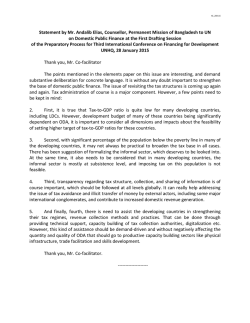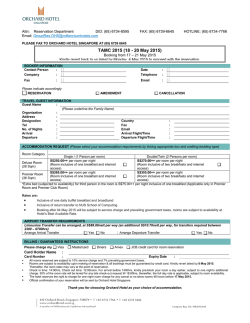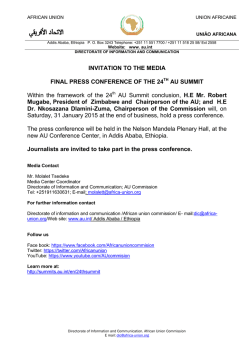
Netherlands Statement First drafting session of the outcome
Netherlands Statement First drafting session of the outcome document of the Third International Conference on Financing for Development, New York, 30 January 2015 Distinguished co-facilitators, Thank you for giving me the floor. I am speaking on behalf of the Kingdom of the Netherlands, and would like to align myself with the statement made by the EU. On the synergies between post-2015 and Financing for Development and in terms of the political value of the Addis Outcome Document, we emphasize the need to agree on ambitious and concrete deliverables for achieving and implementing the post2015 SDG’s. In this sense a comprehensive Addis package for a 'how' pillar could be made up of objectives and actions similar to the substantive goals and targets in the 'what' pillar. On the specific building blocks addressed in the elements-paper, we would highlight the following 7 points: 1) ODA will remain necessary to encounter the needs of the poorest and most vulnerable, including specifically LDC’s, LLDC’s, SIDS and fragile and conflict affected states. We would welcome recommitting to the UN of 0,7% of GNI and a focus of 0.15-0.20% of GNI to LDCs. 2) Trade, investment and technology are key factors to spur up economic growth and development, including a supportive enabling environment that is inclusive and beneficial to all. In particular, we want to address that a commitment to Aid for Trade contributions for LDC’s remains crucial. 3) A guideline on tax-to-GDP ratio can help defining the policy need of developing countries to raise domestic resource mobilization, noting that no 'one-size-fits-all' target exists and that policy space is needed to set specific country targets for higher tax revenues. 4) As one of the three Co-Chairs of the Global Partnership for Effective Development Cooperation – a global platform for multi-stakeholder dialogue and action that expands space for all actors involved – we strongly believe that an inclusive approach, uniting governments with civil society, private sector, foundations and other stakeholders on equal terms, is indispensable for implementation of the post-2015 SDG’s. 5) Innovative financing mechanisms and inclusive partnerships are key to mobilize and effectively use or direct finance where needed. Best practices should be exploited. Examples include: The Zero Hunger Challenge, Sustainable Energy for All, Water and Sanitation for All, GAVI or the Global Fund to Fight Aids, Tuberculosis and Malaria. 6) Underlining the importance of the principles of effectiveness, it is essential to get a better insight in all resources available – public, private, national as well as international. Therefore, the Netherland would like to draw attention to the opportunity offered by the International Aid Transparency Initiative (IATI) in terms of data availability. Open data are key for improving the availability of information on the scope, results and impact of development actions and budgets. 7) Sustainability reporting is a vital resource for managing change towards a sustainable global economy – one that combines long term profitability with ethical behavior, social justice and environmental care. For example, the Global Reporting Initiative (GRI) – based on multistakeholder engagement – provides a comprehensive Sustainability Reporting Framework that is widely used around the world. We should draw on existing initiatives like this for normsetting. Thank you for your attention.
© Copyright 2026
